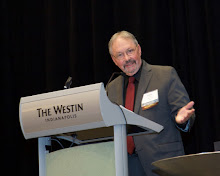That’s certainly seems to be what’s happening with “FreeCreditReport.com”, a brand owned by Experian. Experian is the result of a 1996 merger between the U.S.-based TRW Information Systems and CNN, Europe’s leading information service company. According to its web site, Experian generates annual revenues of over $4 billion (USD), operates in 65 countries and employs over 15,000 people.
Unless you fast-forward through TV ads, you have undoubtedly seen one of the “FreeCreditReport.Com” commercials. Like the 60’s radio superhero, Chicken Man, “they’re everywhere, they’re everywhere”.
There’s was just one tiny problem with the free credit reports; they required that you enroll for a $14.95/month “Triple Advantage” credit monitoring service in order to obtain your “free” credit report. If you failed to cancel within a short period, you were charged that monthly fee until you canceled, and if you did cancel, your fee was not prorated.
According to an article in the New York Times, the company previously paid a total of 1.25 million dollars in 2005 and 2007 to settle FTC charges that the offers were misleading.
New FTC rules went into effect on April 2nd, requiring that companies offering “free” credit reports include the following disclosure at the top of every page where the “free” report is mentioned:
THIS NOTICE IS REQUIRED BY LAW. Read more at FTC.GOV. You have the right to a free credit report from AnnualCreditReport.com or 877-322-8228, the ONLY authorized source under federal law.In an apparent effort to avoid the letter of the law, Experian is now charging $1 for a credit report on the “freecreditreport” web site, donating the full $1 to Donor Choice – a charitable organization – and artfully noting that the “free” report is no longer free “ . . . due to Federally imposed restrictions”.
Now, there is absolutely nothing wrong with companies offering credit monitoring services (Disclosure: I subscribe to such a service myself, and have for several years). When the business is clearly, conspicuously and unambiguously offering to sell a monitoring service, it may be of significant benefit to a certain segment of the consumer market.
Not only does the new $1 fee make the site’s name even more questionable, but the transparent effort to side-step the new law (perhaps unintentionally) makes the offer even more questionable. In the past, an ordinary and trusting consumer might wonder why the company needed credit card information if the credit report was “free”. Now, however, with the addition of the $1 fee, the request for credit card information is entirely plausible – and the consumer may be even more likely to miss the fine-print notice about the $14.95 monthly charge.
As a major global business, Experian has appropriately placed an emphasis on its own corporate social responsibilities. Its investor web site notes its goal is “. . . to make the business more sustainable from a social, ethical and environmental (SEE) perspective.” With respect to consumers, one of the corporation’s six stated responsibilities is to “. . . Inform and empower consumers, and ensure that those who interact directly with our company receive fair and honest treatment.”
The company’s board – and its most senior global management – should not condone practices in the United States that fail to live up to its own stated corporate responsibilities. To paraphrase French mathematician and philosopher, Blaise Pascal, “The only shame is to have little.”





